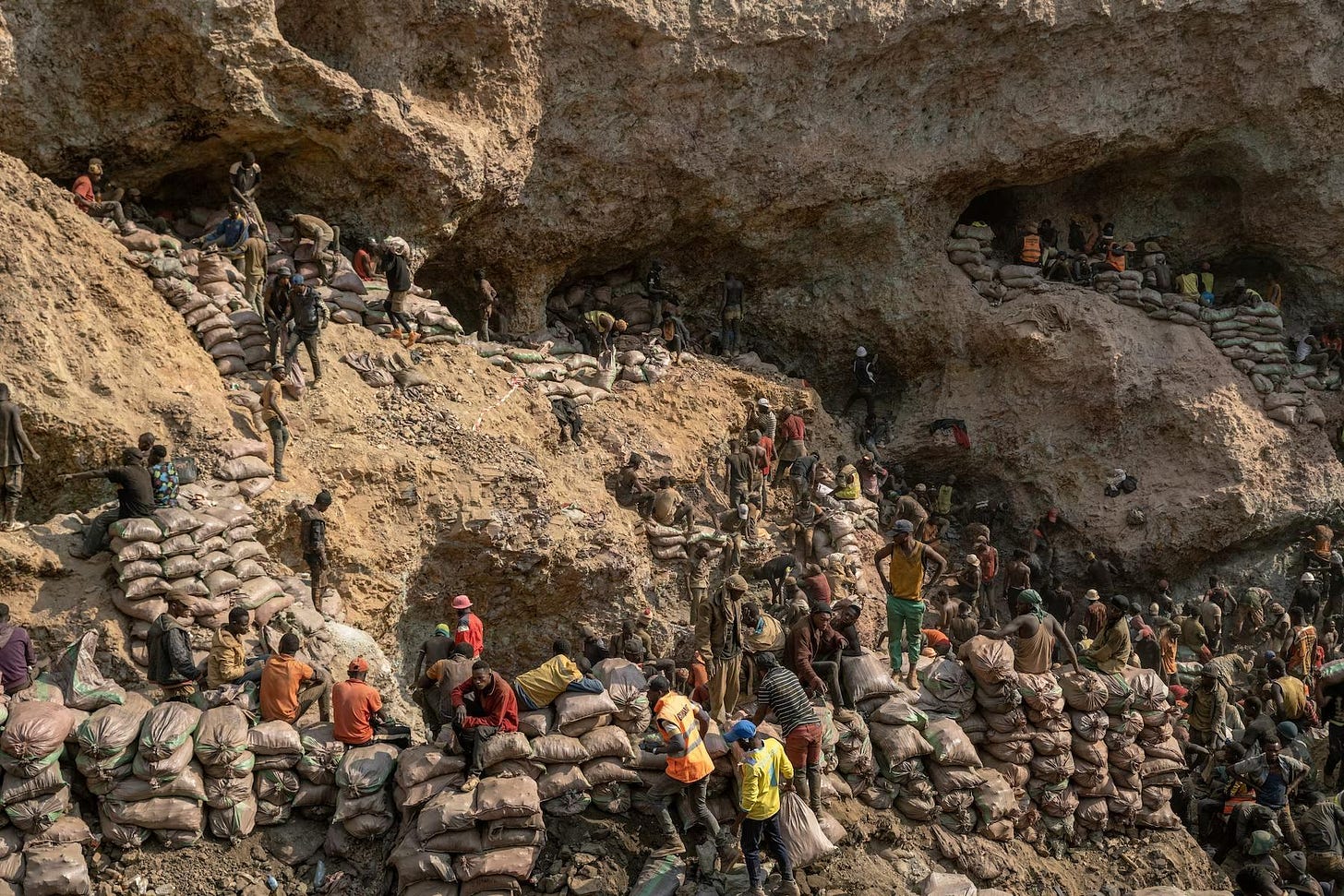Weekly Groundings are published every Friday to highlight the most interesting news, links, and writing I investigated during the past week. I hope they help ground your thinking in the midst of media overload. Please subscribe if you’d like to receive these posts directly in your inbox.
Without further ado, here’s this week’s Weekly Grounding:
This interview with economist
on Real Progressives contains some perceptive commentary on the contemporary global economic and geopolitical situation. Hudson’s book, Super-Imperialism: The Economic Strategy of American Empire, is a classic which unfortunately has more readers on Wall Street than on the left. In the interview he states: “The military today isn’t really how you control other countries. America’s found it much easier to do this by financial mechanisms…You use finance as a means of imposing postindustralization and depression in order to prevent democracy from developing.” I have been concerned with the question of industrial vs. non-industrial labor for quite some time. See, for example, my 2015 article, “Students, Workers and the Specter of Surplus Value,” at Counterpunch.
“Democracy Needs Healthy Debates About War and Peace”
On the topic of the military-industrial complex, Jyotsna Naidu discusses the economic incentives for war-making in this article for the Institute for Policy Studies. She notes that “the Pentagon has never passed a financial audit! It’s the only major federal agency that hasn’t passed an audit, despite getting more discretionary dollars than any other. That means that we don’t know where our tax money is going. Who benefits from this lack of transparency? Exactly who you’d think — contractors who profit off war. Around half of the military budget goes to for-profit contractors who make excessive profits at the expense of taxpayers and peace.”
“Niger Coup: Macron Threatens ‘Military Intervention’ After Embassy Attacked”
This is important complement to Vijay Prashad and Kambale Musavuli’s article featured last week in Weekly Grounding #12 on the coup in Niger. In this video for Warrior Creed,
and Usman Raja address the Western economic and military interests in Niger and the brutal legacy of French colonialism and contemporary reality of neocolonialism in the Sahel region of Africa. Their critique of the “new conservatism” for its willful ignorance of colonialism and the root causes of migration is particularly salient.
“Despite Reforms, Mining for EV Metals in Congo Exacts Steep Cost on Workers”
The Washington Post has published some surprisingly good reporting about the impacts of the rapidly expanding electric vehicle industry on workers. I have featured some of this reporting previously in Weekly Grounding #5. As with the pillaging of Niger for uranium, Africa is also the focal point of resource extraction for this cutting-edge “green” technology. This article discusses cobalt mining in the Congo: “Nearly 90 percent of the cobalt produced in Congo, home to half the world’s reserves, goes into batteries, including those used by American, French, German, Japanese and South Korean automakers. Demand for cobalt is projected to increase 20-fold by 2040, according to the International Energy Agency.” This photograph at a so-called “artisanal mine” (i.e. hand-dug mine) shows the working conditions that the electric vehicle boom depends on:
“Please Don't Sue the Scientists Who Exposed Your Papers for Containing Bad Data”
I have touched on the recent spate of data manipulation scandals at elite American universities in Weekly Grounding #7 and Weekly Grounding #10. This article by
at discusses Harvard Business School behavioral scientist Francesca Gino’s 25 million dollar lawsuit against the scientists who scrutinized her data. He illustrates the worrisome implications of such a lawsuit: “The problem I foresee is that Francesca Gino’s lawsuit creates the obvious following conclusion: if you identify cases of what you think is scientific fraud from a prominent researcher, you might now be on the hook for millions, unless you, in your accusations, can directly prove intent with a smoking gun (rather than merely that the author has papers where the data is highly problematic). The implications are vast. Should a PhD student who makes $24,500 a year take on that risk? Should a postdoctoral researcher? This is what people will naturally ask themselves in light of this lawsuit.”
“The Four Thinkers Who Took on the Mob”
- reviews Wolfram Eilenberger’s new book, The Visionaries, for Unherd. I shared some of Eilenberger’s writing on Simone Weil in Weekly Grounding #10, and this book explores Weil’s philosophy alongside that of Hannah Arendt, Simone de Beauvoir, and Ayn Rand. Reflecting on the contemporary relevance of the two Simones, Stock writes: “The boundary of the self in relation to others has never been more porous. Resistance to the ‘Great Beast’ is increasingly difficult, even if we now answer to bureaucrats in HR departments and not to party apparatchiks. In an age of virtual and machine-mediated relationships, we invent new selves online for the benefits of imaginary beings but take every opportunity to avoid other people in the flesh. In doing so, we avoid ourselves.”
“From Homogeneity and Bedlam to Sense and Sensibility”
- explores the differences between AI “learning” and human creativity on his eponymous Substack: “The ongoing revolution in artificial intelligence, rather than enabling us finally to corral the deluge of digital data into more sensible structures, threatens to create a whole new level of nonsense. A very recent paper by researchers at Stanford and Rice universities makes the case that the more that generative AIs train on synthetic data produced by generative AIs, the more they lose quality, diversity, or both in their output. In other words, the images they generate diverge more and more from real-looking images, and their variety collapses toward greater and greater sameness. The researchers call this process an ‘autophagous loop,’ in which the AI consumes itself and goes mad.” He continues: “I hope the reader will affirm that this essay is not merely a reshuffling of the elements that an LLM could perform. I could not have written it if I hadn’t received input from the ocean today. Like any true artist, I am a vessel for the ongoing process of creation. Something new comes in, not from me, but through me. If I only sit in my office and think, drawing from the legacy real data and the synthetic data derived from it without adding new data from outside it, all I can do is reshuffle the bits.” I wonder what Eisenstein would think of my argument in “Telos or Transhumanism?” in relation to the perspective he articulates here.
What grounded your thinking this week? Feel free to share in the comments.





